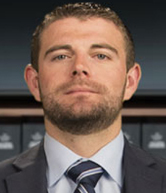We offer an exciting Intellectual Property Fellowship Program for incoming students with backgrounds that are a good fit for careers in intellectual property law.
If you are a prospective law student with an undergraduate or advanced degree in the hard sciences or engineering, this program would provide you a wealth of opportunities to incorporate your existing skills into a package that is in high demand in the legal community.
But the IP Fellowship is definitely NOT limited to those with technical backgrounds. The “soft IP” areas of trademark, copyright, rights of publicity, trade secrets, and even many aspects of patent law are open to anyone with the interest and drive to succeed in a rapidly expanding area of law that has become essential anyone with a business or corporate practice.
Our program provides superior access to intellectual property law in the classroom and in the field. Unlike other programs, our Fellowship begins on your first day of law school. Your first semester legal writing class will focus on IP problems. In the second semester, the IP fellows are invited to attend a multi-day, for-credit seminar introducing various aspects of intellectual property law, including the basics of patents, copyrights, and trademarks as well as how these bodies of law interact with other areas such as contract and antitrust law. The program typically includes members of the bench and bar, many of them alumni of the law school, who provide real world flavor to the academic experience. Students in the class write papers about an IP topic that interests them, and the author of the best paper receives a tuition stipend for the fall semester.
In the second and third years, IP fellows:
-
Take Introduction to IP Practice where they learn to prepare a variety of documents such as cease and desist letters, non-disclosure agreements and search reports that form the core of a practicing IP lawyer’s workload;
-
Take the trademarked IP Practicum Course, an innovative spring intersession program built on the law firm model in which students work on IP-related matters for mock clients under the supervision and direction of partners as would associates in a law firm;
-
Receive preference to register for advanced IP classes;
-
Work one-on-one with professors on intellectual property-related scholarly projects.
-
Participate in IP-related moot court competitions; and
- Organize and attend many scholarly and practice-oriented programs dealing with various aspects of intellectual property through the fellowship program and active student organizations such as the Intellectual Property Law Association and the Entertainment Law Society.
The best parts of the fellowship program, however, are the opportunities to engage in real-world practice. This happens in two ways:
First, IP Fellows work in the law school’s Small Business Law Center prosecuting patent and trademark applications for small business, non-profits, and independent inventors. TJSL is one of only 17 law schools in the nation and the only one in San Diego or Orange County to offer both patent and trademark clinics that are certified by the USPTO. Students have the unique opportunity to interact with PTO staff while representing clients under the direct supervision of licensed California attorneys. The PTO also grants special privileges to certified clinics that enable matters to move through the process faster, giving students a better chance to see the project through. Clinic graduates comment on their experiences here.


